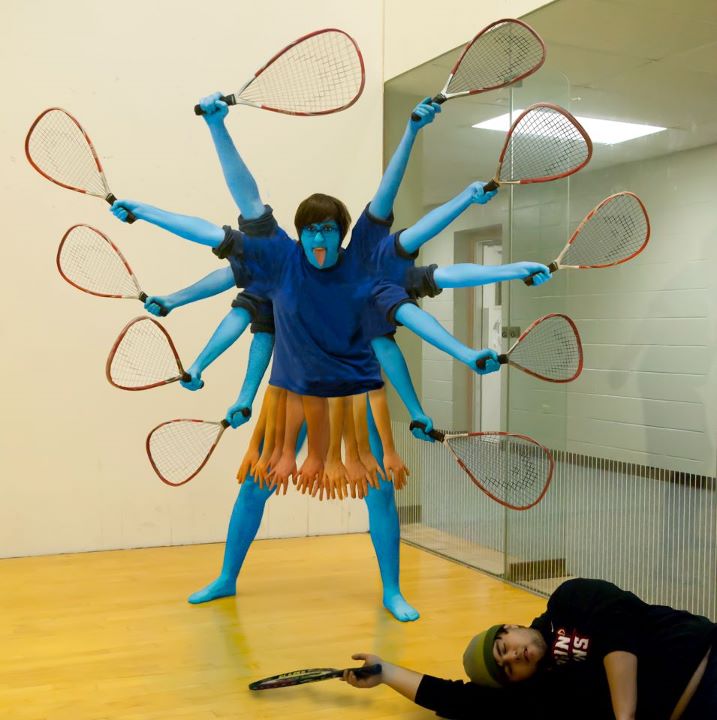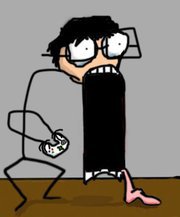While living in Boston for the summer I had the opportunity last weekend to visit Walden Pond. Walden Pond is about 25 miles outside of Boston on the outskirts of Concord, Massachusetts. The pond is most well known for being a historically important location for American literature. In the mid 1800’s, writer Henry David Thoreau lived for 2 years in a small cabin on the edge of the pond with minimal contact with the outside world. While being isolated he wrote his famous book, “On Walden Pond,” describing his time there, and also developed Transcendentalism, a school of thought that encouraged the importance of immersing yourself in the natural world as opposed to the hectic and cluttered hustle and bustle of city life created by the Industrial Revolution. Self-reliance was key.
I was surprised by how small the pond actually was (It’s called a pond for a reason I don’t know what I was expecting). The path around the entire body of water was probably less than 2 miles. The remains of Thoreau’s cabin didn’t take up much space at all either, with only room for a small bed, a desk, and a fireplace. When I first took the whole area in, the environment that Thoreau lived in for 2 years seemed incredibly small and confining. But as I began making my way to the other end of the pond, I quickly realized how vast and detailed this seemingly tiny ecosystem actually is.
Just in terms of life, flora and fauna, there was a lot that I saw in only an afternoon: fish, toads, bugs, birds, chipmunks, snakes, moss and lichen, a wide variety of blooming flowers and trees. But even with a searching eye, I’m sure there were thousands of living things that my eyes glazed over on my first trip. Not to mention the fact that life on and around the pond changes with the seasons throughout the years as well. The environment is in a constant state of flux, and each time you go I’m sure there is something new to discover.
Being that Walden Pond is a historic landmark, it is also a pretty large tourist destination. Even though I got there relatively early in the morning, a large amount of people were already beginning to enter through the main beach area. But what surprised me the most was not the amount of people that were showing up, but the diversity of activities that they ended up doing. The majority of people only walked down to the first main beach. Many sat on the sand, had a snack, or took pictures for only a few minutes before walking back to the parking lot to leave. A lot of people swam in the water at this main beach, not really interested in journeying further around the pond, unfazed by the crowds around them. As I walked only a few hundred yards down the trail away from the main entrance, the beaches became less populated. There were a few joggers on the trail as well, but for the most part there wasn’t anyone else on the path with me. It seemed that most of the people at Walden didn’t get past the main entrance.
After about 20 minutes of walking, I had already reached the other side of the pond. Along the way I had only passed a few other people at rocky secluded beaches. Some men had set up a bunch of fishing poles leaning against a fishing wire at one. Some teenagers were listening to music at another. There was a group of younger kids that were playing in the dirt making rock and stick forts on top of a hill. Eventually I found a small beach that no one was using and set up for the day. It was remarkable that in such a small place so many people had set up such a plethora of even smaller personalized worlds, each one totally absorbed in their own doings. Less than half and hour ago I was in the middle of a growing crowd that smelled of sunscreen, now I was sitting on my own private piece of land and water in almost complete silence, at least for the rest of the day.
For the next few hours I took a nap, sketched a bit, read, tried to catch dragonflies, skipped rocks, and swam out to the middle of the pond. It was incredibly relaxing and as I was drying off after swimming, I thought to myself, “All those people back at the main beach are missing out on experiencing this, it’s their own fault for not wanting to walk any further” almost smugly. But then I reflected back on a conversation that happened on Wonderpod last week about Animal Crossing during What We’ve Been Playing.
For those of you that have listened to the podcast even once before, I’m sure you probably picked up on the fact that I really enjoy Animal Crossing. And with the recent release of New Leaf for the 3DS, it’s pretty much all that I can talk about. I love the game but the series is a very quirky experience, and it can be hard to explain why it’s so much fun to people who have never heard of it before or just don’t get it. It’s a struggle to show why paying off a never-ending house loan to a sketchy raccoon while catching bugs and fish and cleaning up a virtual town can be so fun. Physically, the game’s world isn’t even that big. You can probably run across the length of your town in 30 seconds. Although there’s a wide variety of creatures and furniture to collect, the game’s item catalogue isn’t unlimited. You theoretically could get every single thing in the game in almost no time at all if you wanted to, the option to time travel is there.
So why confine yourself to playing in such a small world, with similar or even repetitive day to day tasks?
Why live alone in a cabin on the edge of a pond in the middle of nowhere, Massachusetts for 2 years?
I think for some people there’s a certain charm to living in an area that you have an almost complete understanding of. There is no fear of the unknown. And through living by yourself, the lack of competition is a welcome change from school, or family, or a job. You can actually be the master of your own domain, whether it is on a virtual screen or in the woods. It is this essence of smaller size that makes Animal Crossing stand out among the many other sandbox games out there (Minecraft comes first to mind). Animal Crossing is limited; there are boundaries. It does not expand forever, in terms of space or game rendered experiences. It is finite. And in that small world, you feel safe and comfortable because it is all that you really have to know or care about. And with that security comes freedom. Animal Crossing provides that Thoreau experience of finding solitude in the woods without ever having to leave your own home.
I experienced that same feeling of freedom I get playing Animal Crossing, as I did at Walden Pond that day. There really is no wrong way to play Animal Crossing, if you wanted to you could never pay off your house loan and live in a tent (or cabin) the rest of your life and that’s perfectly fine. You could cut down all the trees in your town if you wanted and replace them with holes if you felt like it. Some people might find that weird, but it isn’t a wrong way to play, there’s no score…no end game. Similar to the people that never made it past the main beach, there isn’t an incorrect way to spend a day at Walden, it is whatever you make of it.
So while sitting on my own little beach in my own little world, at least for the rest of the day, I realized that even though it may be small Animal Crossing is whatever you want it to be. Animal Crossing is your own Walden Pond. And even though your first impression may be that of its small scope and size, take a closer look and see how deep the pond actually is.



 June 25th, 2013
June 25th, 2013  Glasenator
Glasenator 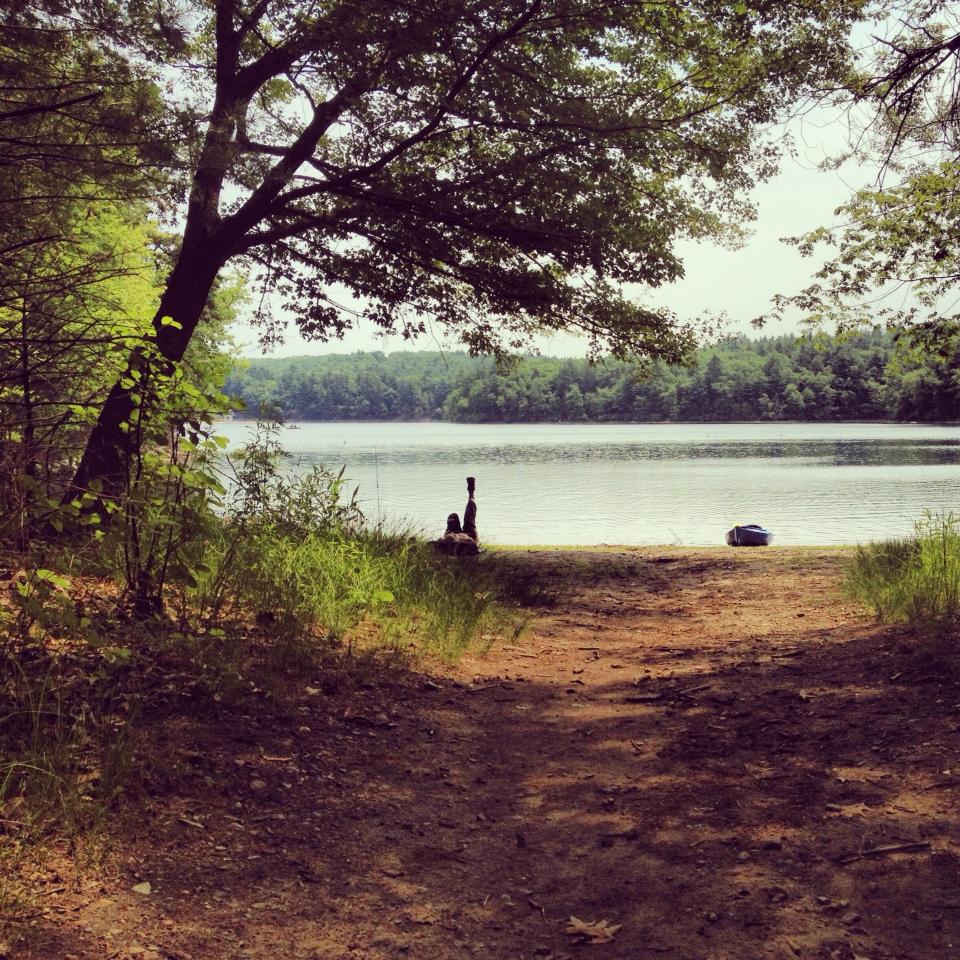
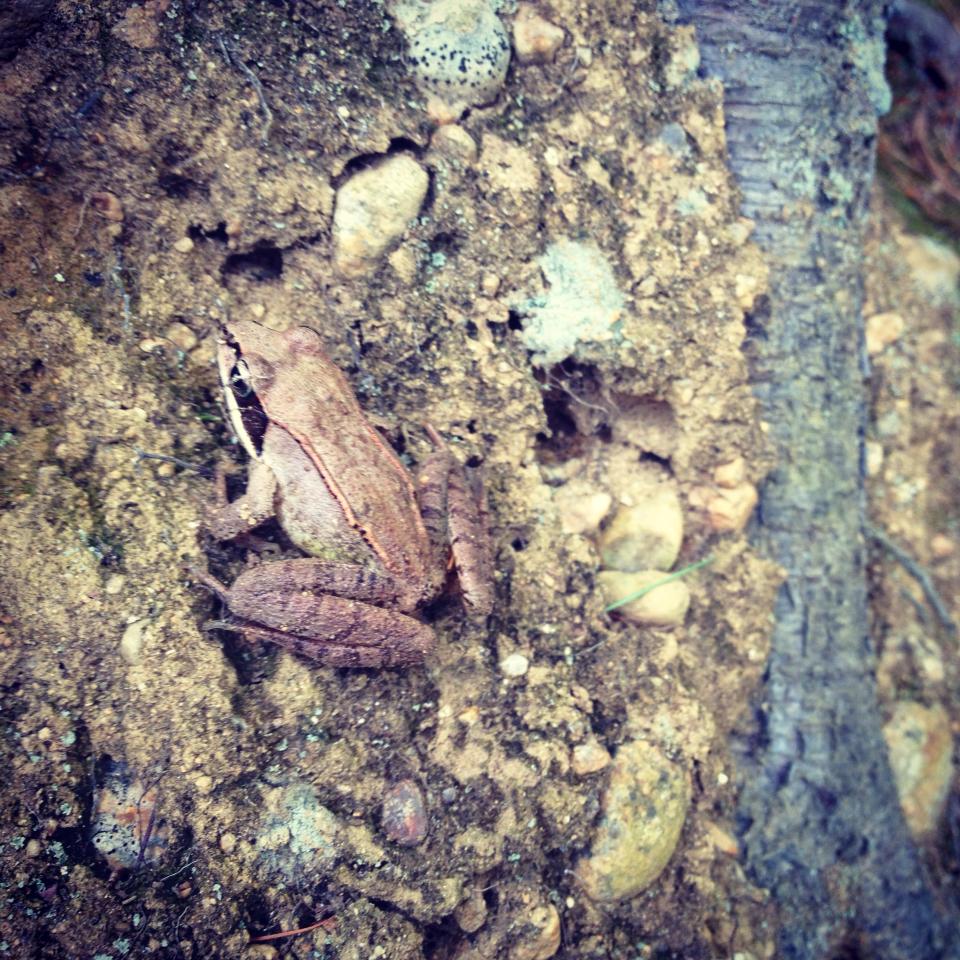
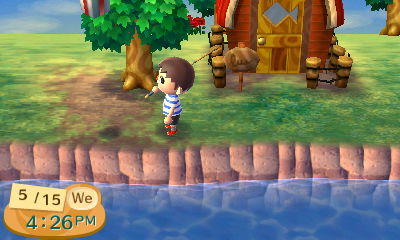

 Posted in
Posted in 

